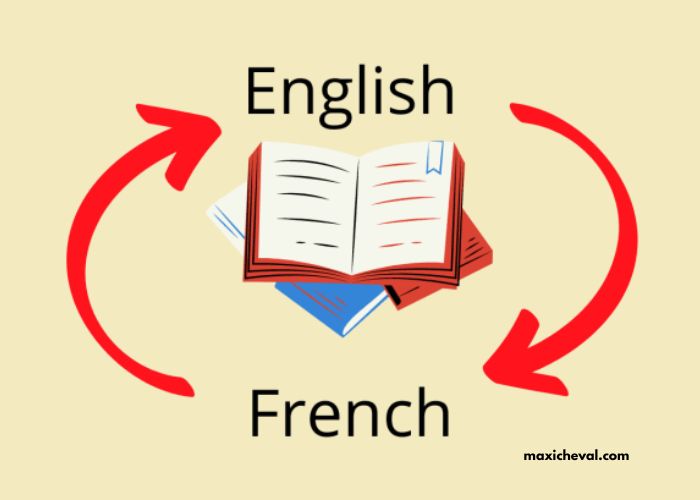Learning how to translate from English to French opens doors to global communication and cultural understanding. This process is essential for students, professionals, and content creators alike.
Whether you’re working on documents, emails, or creative writing, switching from English to French requires more than swapping words. It demands awareness of grammar, tone, and expression.
What Makes English To French Translation Challenging?
Translating from English to French is not as straightforward as it seems because both languages differ significantly in grammar rules, sentence structure, and idiomatic expressions. A sentence that works perfectly in English may sound awkward or incorrect if directly translated into French.
This is where the complexities of gendered nouns, verb conjugations, and agreement rules make a major difference. The French language requires attention to accents, article placements, and formal versus informal speech distinctions, which don’t have direct equivalents in English. Therefore, mastering translation from English to French involves deep linguistic sensitivity and practice.
For example, consider the English sentence “She is happy.” In French, it’s “Elle est heureuse,” where “heureuse” has to agree in gender with “elle.” Such subtle changes are critical for correct usage. Hence, when converting from English to French, understanding grammatical transformation becomes indispensable.
Cultural nuances also impact this process, as the way a phrase is used in English may not be culturally acceptable or appropriate in French. These small but powerful factors show why a strong foundation in both languages is crucial when going from English to French.
How Do Online Translators Help With English To French Conversion?
Online translation tools are now key players in modern language conversion, especially for anyone attempting to move from English to French. Platforms like Google Translate, DeepL, and Microsoft Translator use advanced AI models to provide quick and increasingly accurate translations.
These tools are particularly useful for travelers, students, or beginners who want instant access to a translation without knowing grammar rules. Typing or speaking an English sentence allows these tools to display or pronounce the French equivalent in seconds, saving time and effort when dealing with short or casual conversations in English to French format.
However, while such tools are powerful, they are not perfect. They often miss context, idiomatic usage, or culturally appropriate phrasing. That’s why relying solely on machine translation for important documents or professional work from English to French is not recommended.
To use these tools wisely, many users translate small sections and cross-check them for accuracy, especially when precision matters. This hybrid approach allows the speed of AI to combine with the accuracy of human review in any English to French project.
What Are The Best Practices For Manual English To French Translation?
When translating from English to French manually, following a structured approach significantly improves results. First, understanding the entire context of the sentence is essential. Word-for-word translation often leads to grammatical or semantic errors, especially in professional or academic content.
The translator must identify the correct equivalent of each word, taking into account subject-verb agreement, gender, and verb tense. For example, in English to French, the simple past tense often becomes passé composé, which consists of two words and requires auxiliary verbs and agreement in past participles.
Another best practice is to read the translated sentence out loud to check for natural flow. French sentences are often longer and more descriptive than their English counterparts, requiring adjustments in sentence length and complexity when converting from English to French.
Lastly, proofreading and revision are critical. Even native speakers make mistakes in grammar or vocabulary, especially when shifting ideas from English to French. Careful re-reading allows you to find inconsistencies, tense mismatches, or awkward expressions and revise them to ensure the final translation feels authentic and fluent.
How Important Is Cultural Context In English To French Translation?
Cultural context plays a vital role in translating from English to French because both languages are deeply rooted in different historical, social, and emotional expressions. Direct translation of humor, idioms, or metaphors may fail if the reader does not understand the underlying cultural background.
For instance, the English idiom “kick the bucket” when translated literally into French makes no sense. A correct English to French version would require an idiomatic equivalent like “passer l’arme à gauche,” which carries the same meaning but aligns with French cultural norms.
This cultural gap becomes even more pronounced in marketing, literature, or legal translations, where words must do more than convey meaning—they must evoke the right response. A successful English to French translator must be culturally aware and adapt their language choices accordingly.
This awareness also helps avoid offensive or inappropriate wording. What’s polite or humorous in English may be considered rude or confusing in French. Therefore, an expert in English to French translation also becomes a cultural mediator, ensuring both clarity and sensitivity.
How Can You Improve Your English To French Translation Skills?
The journey of improving English to French translation skills involves consistent practice, formal study, and immersion in both languages. It begins with building a strong vocabulary bank, including common nouns, verbs, adjectives, and prepositions, used in day-to-day situations.
Reading French newspapers, listening to French podcasts, or watching French movies with subtitles can dramatically increase fluency. Exposure to native usage helps train your mind to recognize patterns, tones, and formal versus informal contexts, all of which enhance English to French translation ability.
Taking language courses or certification programs also builds a structured foundation. These often include grammar drills, essay writing, and conversation sessions that train you to think directly in French, rather than translating in your head from English to French, which is a slower and less reliable method.
Finally, practicing real translations—like turning English blogs, articles, or emails into French—is one of the best ways to grow. Feedback from native speakers or teachers offers valuable corrections and insight that reinforce correct language transfer from English to French.
What Role Do Grammar And Syntax Play In English To French Translation?
Grammar and syntax form the backbone of any successful English to French translation. While English often follows a subject-verb-object structure, French allows more flexibility and requires proper agreement in gender, number, and tense, which makes translation a grammatically rich task.
For instance, adjectives in French typically follow the noun, unlike in English. So, “a red car” becomes “une voiture rouge.” Understanding such syntactical rules is essential when moving from English to French to avoid awkward phrasing or outright errors.
Additionally, verb conjugation is more complex in French. There are multiple past tenses (passé composé, imparfait, plus-que-parfait), all serving different narrative functions. Choosing the wrong tense in a English to French translation could mislead the reader about when something happened.
Sentence linking and punctuation also differ. French uses more commas and less reliance on short sentences, leading to a flow that must be maintained in English to French work. Overall, grammar and syntax are more than just rules—they are essential tools for clarity, elegance, and precision in translation.
Conclusion
Translating from English to French is both a linguistic and cultural journey that demands careful attention to grammar, context, and nuance. With the right mix of tools, practice, and cultural understanding, anyone can master this valuable skill.
Whether for academic, professional, or personal use, the ability to convert from English to French opens doors to deeper communication and global opportunity.




